Before Starting a Renovation
Planning a renovation?
Are you looking to make your renovation dreams a reality? And just as importantly, do you want to ensure the project doesn’t become a nightmare? Then you’ve come to the right place. Here you’ll find the information, insights, inspiration, tips, tools and, most importantly, access to professional renovators, to get your job done right.
Getting informed is the first step in doing it right. Having a plan and understanding the contracting process are keys to finding the right contractor and getting the results you want. This section provides the basic information you need – step by step.
Planning, Design, and Budget
This is your introduction to the renovation process – how it works, how to get prepared, “who's who” in terms of contractors, and the business aspects you need to understand before you get going.
Developing your plans
This section takes you through the planning process so that you can:
- Develop a clear description of what you want to change in your home and specific goals for your renovation project.
- Define your priorities - which renovation items are "must-haves," and which would be nice to have if your budget allows.
This planning can make a real difference in terms of the success of your project and your ability to keep within your budget. Many renovation problems are a direct result of poor planning.
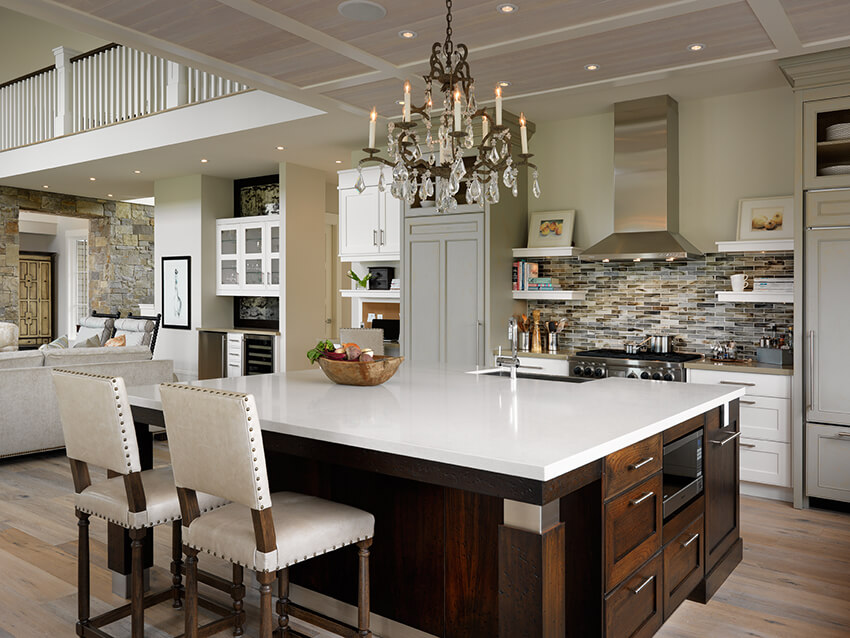
Worksheets
What do you want to change?
There are many reasons to renovate. You may need to repair or replace something, such as roofing, siding or windows. You may want to modernize a tired-looking kitchen or bathroom. Or changes in your household, such as the arrival of a new child or the need for a home office, may require alterations to your home. Thinking through what you want to change, and why, serves as the foundation for your renovation plans.
"We only have one bathroom and with two teenagers and two working parents, getting everyone out the door in the morning is a real headache. I feel like I've been in a traffic jam before I even leave the house."
"We never really use our living room. It's too formal for the way we live, and with the smaller windows in these older homes, it's too dark and feels closed-in."
To help you: Download and use Worksheet "A" to record the changes you want to make to your home.
Defining goals and setting priorities
Beyond necessary repairs, your home renovation should provide you with improved function, comfort and convenience. To achieve this, you need to set some general goals for your project and determine what your priorities are.
In setting goals, consider the day-to-day experience of living in your home and focus on how you want this to be improved by your renovation. For instance, if your existing kitchen is a problem, describe how your dream kitchen would work. Here’s an example:
"I'll be able to cook dinner without having to stop and clean up all the time. There's plenty of working space right near the stove and there's also a big area for setting out dishes and serving plates. Everything I need is close at hand, but not on the counter top – there are lots of drawers and cupboards for everything. And there is enough space so that someone else can sit at the kitchen table, and we can carry on a conversation without bumping into each other."
By describing your renovation goals this way, you focus on what you want to achieve in relation to your lifestyle. There are three important aspects you should pay particular attention to:
Use Worksheet "B" to write down your renovation goals. With clear goals in place, you can now determine what your priorities are. This next part of renovation planning can be the most fun and exciting.
Your Wish List
This next part of renovation planning can be the most fun and exciting. Developing a "Wish List" involves listing the specific features you would like to include in your project and deciding on the importance of each item. “We need this” items are those things you absolutely need. “We like this” items are those you’d like to have, but that are not essential if your budget is tight.
This stage of planning is all about exploring design and product ideas and learning as much as you can about what is available. Get out and see what others have done, what new products are available and what type of "look" is right for your family and home. Here are some ideas:
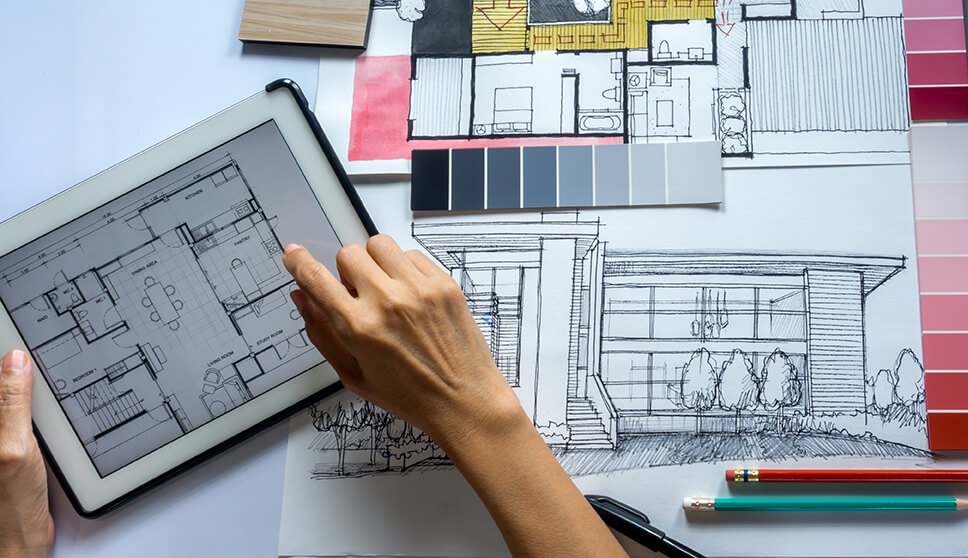
- CHBA renovators across Canada do amazing work, and the best of the best in home design is found in CHBA’s national awards program. Check out our photo galleries of the winners of in CHBA’s National Awards for Housing Excellence, and be prepared to be inspired!
- The Internet is of course a fabulous source of home renovation ideas. Search "home renovation ideas" and start looking. Visit home improvement retailers’ websites for specific product ideas. Try going to specific product manufacturers websites. Save the things you like or print them out.
- Look for design and home improvement magazines at your local newsstand, library or online. Collect pictures of homes, rooms and products that appeal to you.
- Visit new home builders' show homes to see the latest in design, construction and finishing of homes.
- Visit kitchen, bathroom and other retail showrooms. Talk with salespeople and pick up manufacturers' literature on the types and brands of products you like. For a list of local home builders in your area click here.
- In many communities, home shows are held during the year. Renovators, designers and product manufacturers take part in these shows. This provides an excellent opportunity to see what's new. Check with your Local Home Builders' Association for information about home shows.
- In some communities, local renovators will organize renovation open house tours to showcase recent renovation projects. Again, check with your Local Home Builders' Association for details.
Keep the information you collect in a file, box or computer folder for later reference. This material will be very useful in discussions with renovators and will give them a good idea of what you like and want. Use Worksheet "C" to write down your wish list and priority items.
To help you: Download and use Worksheet "D" to record any anticipated lifestyle changes that could affect your renovation plans.
The Design Process
A successful renovation depends on good design. Whether you are remodelling the entire house, turning your basement into living space or updating your kitchen, the quality of the design will determine how satisfied you will be with the finished job.
Experienced renovators will work with you to explore designs that fit your home, lifestyle and budget. The information you have developed through your own planning process will pay off at this point in the process. Renovators will also advise you on the level of design detail and specification needed before they can provide you with a firm cost estimate and contract, and the work can get underway.
- For a simple renovation project, you and the renovator may be able to work out the design details. If your renovation is large or complex, the renovator may suggest that design be dealt with as a first and separate step of your project.
- A growing number of renovation companies have a designer on staff - part of a growing trend towards one-stop shopping. Alternatively, renovators may recommend a designer or architect from their network of professional associates Either way, having a renovator involved at the design stage helps to ensure that your design is practical and feasible from a construction standpoint.
- Typically, the design process begins with a discussion of your ideas and a look at photos, drawings or product literature that you may have collected. The renovator or designer will also ask you to describe what you are trying to accomplish and what do you really need and want.
- Based on this information, "concept sketches" are developed, usually more than one to give you a range of options. Often additional fine-tuning is needed to complete the design.
- At the end of the design phase, you will have a set of drawings or plans that are the basis for getting cost estimates. The drawings should show clearly what the final project will look like, including close-up details, and be accompanied by a specification list of the products and materials to be used.
- When your renovation entails structural changes or other work that requires a construction permit, working drawings or blueprints are required for approval by your municipality. Professional renovators can take care of all the details, including dealing with building officials.
- Renovation time is the perfect time to improve the energy efficiency of your home—indeed, the desire improved energy efficiency is often what starts a reno project. To get best informed about the most cost effective ways to improve your home’s energy performance, the best approach is for you or your renovator to engage an EnerGuide evaluator. Certified by the Government of Canada, these professionals do a detailed analysis of your home and give you a full report on its current energy performance, along with a potential level your home can reach with a list of the optimum recommended upgrades for you to consider over time to get there.
Tips for keeping within your budget
Renovating entails balancing what you want and the financial resources you have available. Professional renovators suggest a number of approaches that can help to stretch your budget.
DIY or Hire a Pro?
Many homeowners enjoy do-it-yourself home renovation and repair projects. If you’re planning a project and considering the do-it-myself route, here’s some advice that may help with your plans.

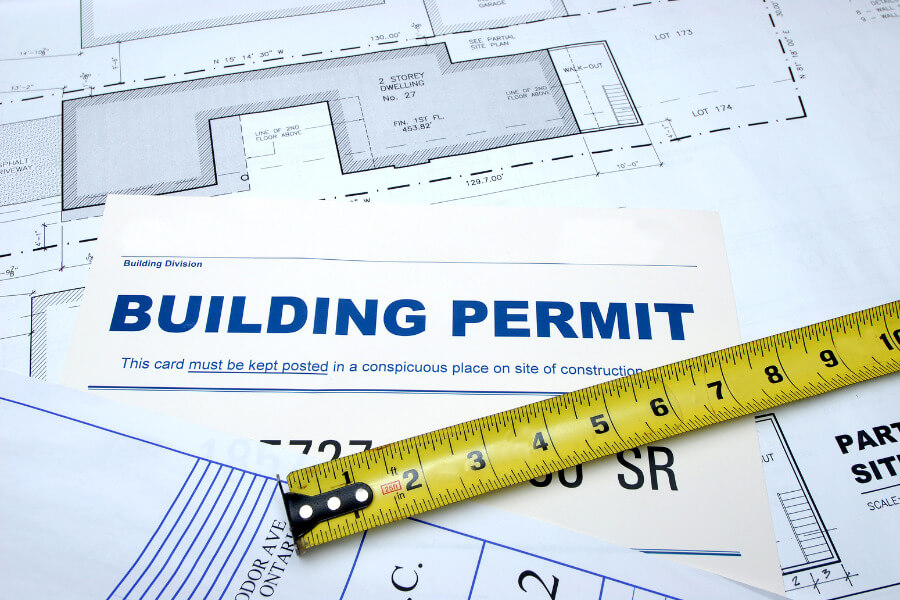

Do you have the necessary skills?
Consider your own skills and abilities carefully. While many of today’s home improvement products are designed to make it easy for do-it-yourselfers, other projects will require specialized skills. Seeing how something was done on a TV renovation show isn’t the same as having practical experience. Getting in over your head can end up costing more money, and frustration, than hiring professional help in the first place.
Do you need a building permit?
Typically, any renovation that changes the structure of your home requires a building permit issued by your municipality. This also means inspections of the work at the appropriate times to ensure the work meets the local building codes. Be sure to get a permit if you need one. Keep in mind that someone looking to buy your house in the future may ask about the renovation work and want verification that the work was done to code.
Do you have the time?
Renovation or significant home repair projects can require a lot of your time to complete. If the work disrupts your day-to-day routine (e.g., kitchen/bathroom renovations) or exposes your home to weather (e.g., roofing projects, exterior refinishing), delays can be a real problem. So before you commit to doing it yourself, be realistic about how much time the work will take, and your ability and willingness to invest this time. If you don’t have the time, don’t start the work.


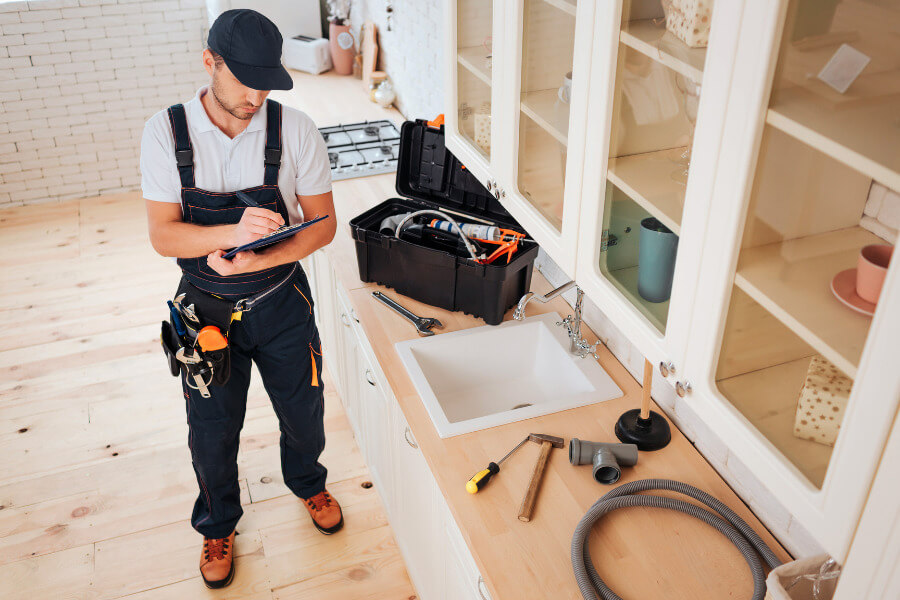
Do you have the tools and equipment?
Saving money by doing it yourself can easily be undermined if you have to layout hundreds of dollars for tools and equipment. Renting is always an option, but costs can also add up quickly if you’re doing the work in your spare time. So when you develop a do-it-myself budget, include realistic costs for buying or renting tools and equipment.
How do the rest of your household feel about it?
Being a do-it-yourselfer is great – as long as everyone else in your household shares your enthusiasm. Nothing undermines a do-it-yourself project faster than having your family upset when their normal routine is disrupted. So talk it through with everyone ahead of time, and make sure you have a team behind you!
If you’re doing it yourself to save money – get a second opinion to be sure you are saving
If your primary reason for doing-it-yourself is to save money, talk to a contractor before you make a final decision. An experienced renovator or trade contractor may be able to suggest ways of reducing the cost of your project while still using professional services where you lack the time or skills. You can also save by doing the finishing work yourself, such as painting or wallpapering, while leaving the more complex work to the pros.
DIY projects to avoid
Put safety first – do it yourself projects most homeowners should avoid
Unless you have technical qualifications, and a lot of experience, there are some projects and types of work that you should avoid doing yourself:
Plumbing, electrical and gas repairs and installations can all require licensed contractors by law, depending on provincial regulations. Make sure you know the rules where you live – and follow them. For the sake of your family’s safety, work involving electricity and/or gas service should only be done by a qualified contractor. Because this type of work can result in a safety hazard if done incorrectly, permits are usually needed.
Roofing or other exterior work involving heights requires proper safety equipment that must be correctly used. If you don’t have such equipment – and know how to use it – don’t take chances, hire a pro.
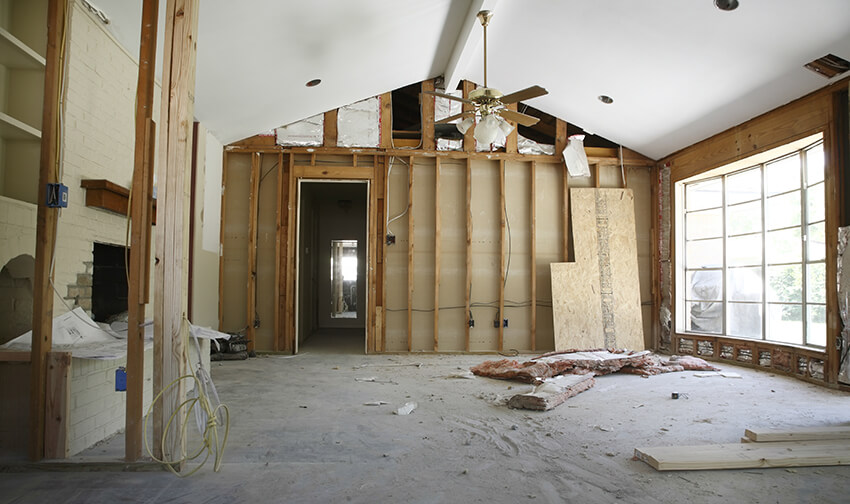
Asbestos removal is another area where you should always use a professional, and provincial laws likely require this. Don’t risk your health, and that of your family, by doing this work on your own.
Learning from others
Homeowners who have completed major renovation projects, including bathroom and kitchen upgrades, additions and whole-house renovations, are a great source of advice. Over the years, CHBA has heard from many such satisfied customers, and here’s the type of advice they offer:
- Find a renovator you can trust and are comfortable with. This is crucial to a good renovation experience. You need to check out the renovator thoroughly. Ask lots of questions when you meet. Talk with previous customers. Visit past or current projects. You also need to be confident that the company is financially stable and has a solid history. Many experienced homeowners also comment on the importance comfortable personal fit with the people they hire, that they easy to talk with and responsive.
- Find out what services the renovator offers. Homeowners often don't realize that many professional renovation contractors also provide design and planning services. Even if you want to work with a designer or architect of your own choosing, a contractor can add a lot of value to the process. "Our renovator saw opportunities for improving our design and offered alternative solutions to structural challenges, saving us money in the process."
- Make sure you have a detailed written contract. "We chose the renovator who had it all written out. We knew what we were in for and didn't have to lie awake at night worrying what the final costs would be."
- Know the facts before the work begins. Ask a lot of questions of your renovator or contractor. What does the work entail? How will it be done and by whom? How will it affect your day-to-day living? Should you consider moving out during any portion of the construction process? What if want to make changes? The more you know upfront about the whole process, the less anxious you'll feel.
- Take an active role throughout the project. It's your investment and your home, so you want to follow things closely and know what's going on at all times. The best results come from good communication and a good working relationship between you and your renovator. Ask for and expect regular, if not daily, updates. Know how to get hold of the renovator if you have questions or concerns. Be prepared to spend time going over drawings, monitoring the progress of your project, and discussing decisions with your renovator.
- Don't expect a problem-free renovation. The bigger the project, the more likely you will run into the unexpected, such as existing deficiencies hidden in the walls, delays in special orders or bad weather. Be flexible and understand that some things are beyond the renovator's or your control. "If there is good rapport and trust between you and your renovator, it is usually easy to find a solution and move beyond the problem."
- Plan ahead for your finishes. Typically, homeowners are responsible for choosing cabinets, flooring, tiles, fixtures and the many other finishes that will complete the job. This can be time-consuming: "My afternoon at the bath showroom turned into two full days." Set aside plenty of time and begin early – in some markets, there may be a significant delay for special orders. And take full advantage of your renovator's experience to help you find the best options.
- Keep money in reserve for extras. Once the work begins, it is not uncommon for homeowners to want to go an extra step - a better quality tile, brand new appliances and so on. "Once you are into it, you realize that just so-so is not good enough, and that now is the best time to get those extra little touches of style or luxury."
As you plan your renovation, here's a Checklist of Golden Rules for a successful renovation. Make sure you have each one covered.
What Type of Contractor Do You Need?
Finding the right professional contractor for your project is important. It helps ensure your renovation project will be completed to your satisfaction, while providing you with confidence throughout the process. Hiring someone who ‘does business the right way’ protects you and your family from unnecessary risks.
This section helps you determine what type of contractor you need, how to find them, how to determine if they do business ‘the right way’, and how to get to the point where you and your contractor are ready to sign a contract and begin work on your renovation project.
Types of Contractors
There are a number of different types of contract services available to homeowners wanting to renovate, so it’s important to determine what type best suits your situation.


Extensive Home Renovation
For large or extensive projects, additions, or a combination of repairs and renovations, you may want a professional renovator to serve as general contractor, organizing and taking responsibility for all aspects of the project, including design, sub-contracting tradespeople, managing permits and inspections, and obtaining building products and materials.
Specific Room Renovations
For renovating specific areas such as the kitchen or bathroom, you may want a specialty contractor. Many kitchen and bathroom specialty firms provide design services and either manufacture or sell the products they install. Renovation contractors can also handle this type of project.


Installations
Large national ‘big box’ building product retailers offer convenient contract installation services for many of the products they sell, such as roofing, windows, flooring and more. Contract installation allows you to deal directly with the retailer for all aspects of the work and payment – the retailer provides the qualified tradespeople, and warrants their work. Retailers that provide contract installation services generally follow the procedures recommended by Get it in Writing! such as verified insurance and Workers Compensation coverage to protect you from unnecessary risks – be sure to ask about this.
Tradespeople such as roofers, masons and carpenters can also be hired directly by you, but you will have to find these people and manage the contracting process yourself.
Electrical, Mechanical, Heating, Plumbing Repair
Trade contractors specializing in each of these areas are likely best suited to your needs. Many utility companies offer repair services for heating and cooling systems, which can make the process simpler. Most provinces require licensing of trade contractors in their area of specialization.
